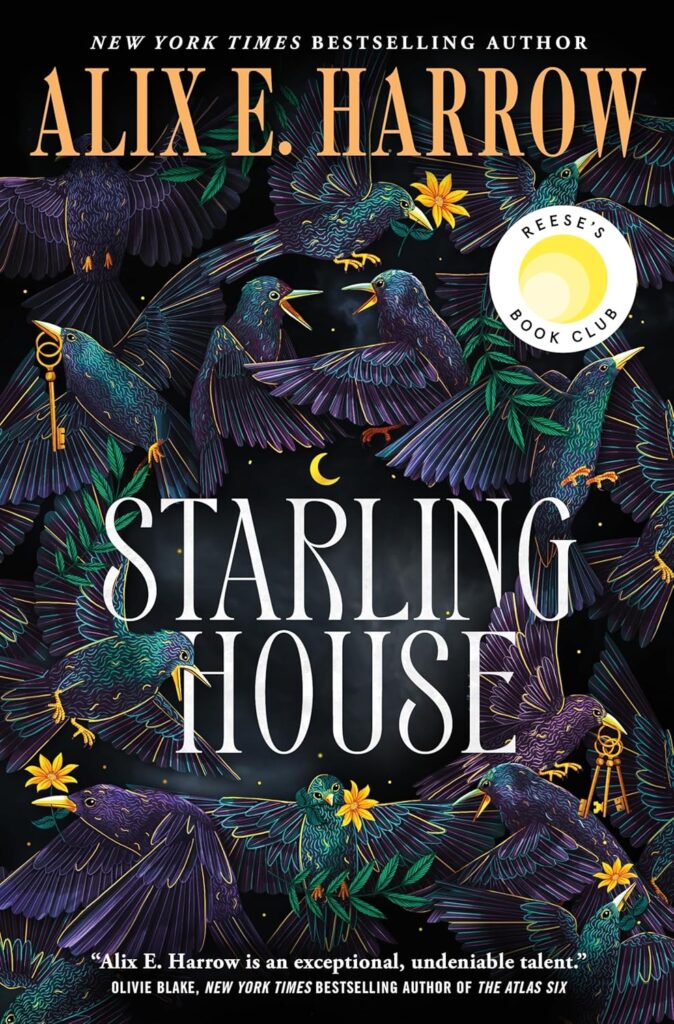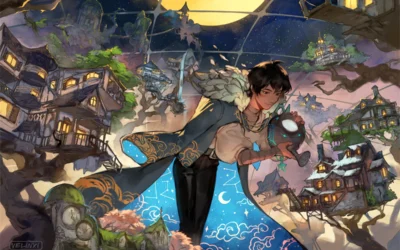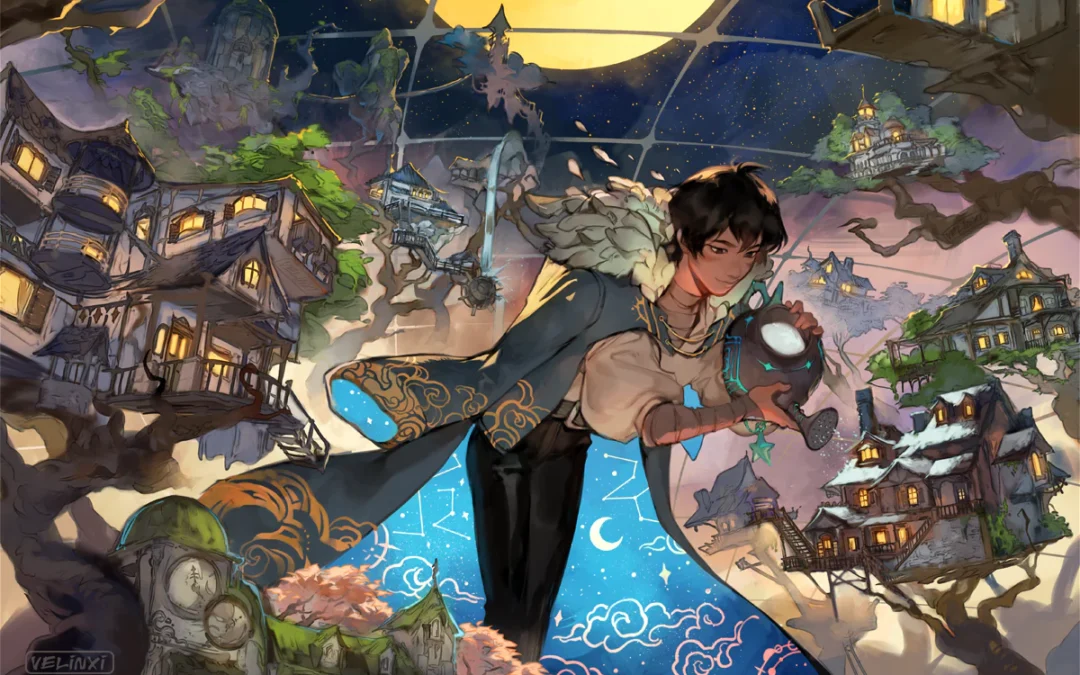Alix E. Harrow is the NYT-bestselling author of The Ten Thousand Doors of January, The Once and Future Witches, Starling House, and various short fiction, including a duology of retold fairy tales (A Spindle Splintered and A Mirror Mended). Her work has won a Hugo and a British Fantasy Award, and been shortlisted for the Nebula, World Fantasy, Locus, Southern Book Prize, and Goodreads Choice awards. She’s from Kentucky, but now lives in Charlottesville, Virginia with her husband and their two semi-feral kids.
I had the opportunity to interview Alix, which you can read below.
First of all, welcome to Geeks OUT! Could you tell us a little about yourself?
Thank you so much for having me! I grew up in Kentucky and grew up to make a series of puzzling financial decisions: a history degree, farm work, another history degree, writing books. It shouldn’t have worked out for me but somehow it did, and now my husband and I live in Virginia with our two (wonderful)(semi-feral) kids.
What can you tell us about your latest book, Starling House? What was your inspiration for this project?
Starling House is sort of a southern gothic fairy tale—like if Beauty and the Beast were set in Kentucky.
Inspiration is always funny to describe, because it’s not a moment—it’s a box, which fills slowly. John Prine’s song “Paradise” was one of the first things I put into the box, about the true history of Paradise, Kentucky, which was destroyed by strip mining. Sinkholes went into the box—these shallow, sudden caves that appear all over the state. Our own house went into the box—it wasn’t haunted, but it had been abandoned for years before we bought it, and it was so spitefully resistant to improvement that it almost seemed alive.
But the book wasn’t ready to write until we decided to move away from Kentucky. Then I could put all my homesickness into the box—everything I still love and miss about my home—and all my resentment, that we had to leave. That the home that raised me, and my mom, and her mom, wasn’t safe for my own children.
As a writer, what drew you to the art of storytelling, especially speculative fiction?
Books. Is there any other answer? Every writer is just a reader without brakes.
How would you describe your writing process?
You know that meme from the Great British Baking Show, where James Acaster says “started making it, had a breakdown, bon appetit”? I’d say that best describes my process.
More formally, I write a pretty thorough outline, then get through the first third of the book, realize it’s all wrong, and re-write it from the beginning. I do the same thing at roughly the 75% mark. I cry both times, shocked and dismayed.

What are some of your favorite elements of writing? What are some of the most frustrating?
Really it’s all a series of frustrations—with myself, and the extremely visible limits of my own skill—except for these wild little moments where you get it right. You’re just kind of slogging along, and then you write a good line or a clever transition, or you finally realize what you’ve been trying to say for months.
Aside from your work, what are some things you would want others to know about you?
I’m pretty good at ping pong. I mean not actually good, but surprisingly good, given that I can’t catch the car keys if someone throws them in my direction.
What’s a question you haven’t been asked yet but that you wish you were asked (as well as the answer to that question)?
I wish people asked what historical romances I’m reading lately.
The answer is: all of Laura Kinsale! Absolutely unparalleled levels of melodrama and angst. In the last one I read, the hero summoned a shark with his mind. Oh, and Lee Mandelo has a new novella called The Woods All Black, which, yes, could be called “horror,” from one perspective, but is also a deeply kind t4t romance in 1920s Kentucky.
What advice might you have to give for aspiring writers out there?
I guess I’d encourage you not to receive advice with skepticism. Like, if there was a formula that would turn a person into a writer, the Big Five would be selling it for $28.99.
That said: read books! As many as you can, with as much attention as you can, in every genre.
Are there any other projects you are working on and at liberty to speak about?
Yes! My next full-length novel, The Everlasting, is about a sad lady knight stuck in a bad time loop. It’s sort of a romance, and sort of an elegiac reflection on the violence of myth-making in service to statehood, and also a chance to explore one of my longest-running obsessions (big ladies with swords).
Finally, what books/authors would you recommend to the readers of Geeks OUT?
Nicola Griffith, always, to everyone; Tamsyn Muir, ditto. Sofia Samatar also has a new book out–Opacities: On Writing and the Writing Life—about craft, based on her emails with one of her friends, which is a lovely reflection of creativity and community.







0 Comments